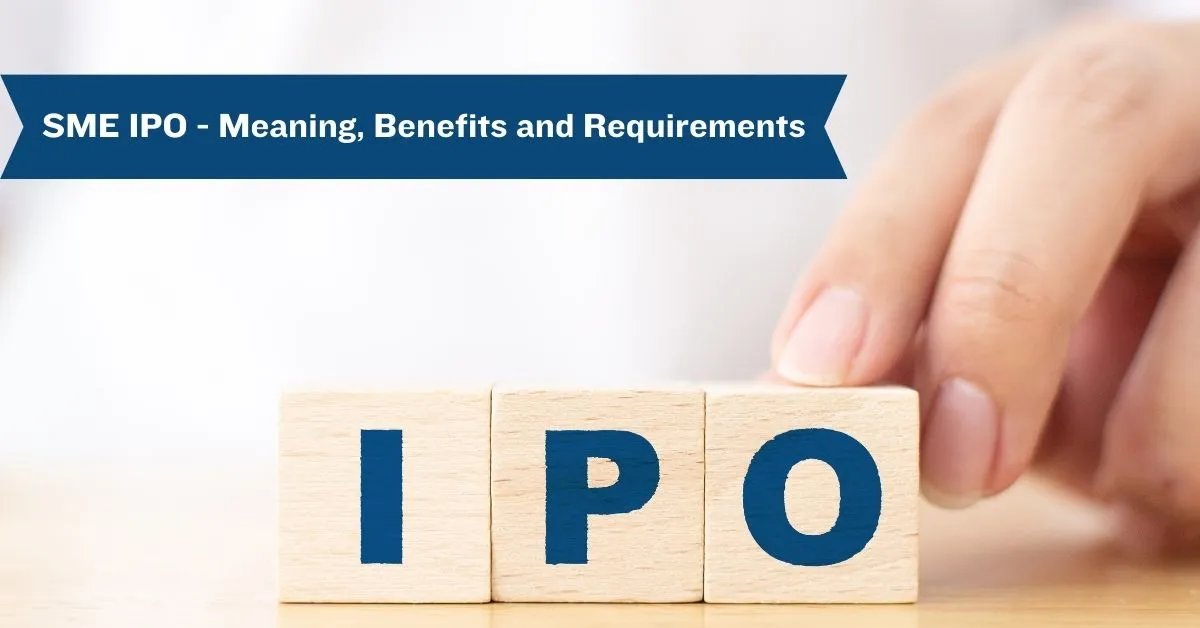


Initial Public Offering, popularly known as IPO, is the offer of shares by a company to the public at large by listing on a recognised stock exchange. It is a preconceived notion that only big companies with high turnover and profitability can launch their IPOs. However, there is a concept of SME IPO in India as well. This allows small and mid-sized companies to raise capital in the same way as their bigger counterparts. Let’s understand in detail what is SME IPO, benefits of SME IPO, eligibility criteria for SME IPO and the role of merchant banker/lead manager in SME IPO.
SME IPO is the process through which a small or mid-size company offers its shares to the public by getting listed on a stock exchange. The listing is not done on normal stock exchanges but on SME stock exchanges. SME IPOs are specifically meant for small businesses that are willing to raise capital for growth and expansion but are not that big to go for normal IPOs.
SME IPO acts as a catalyst of capital for small and mid-sized businesses. The following are the benefits of SME IPO
Access to Capital: One of the foremost reasons for going for SME IPO is to raise capital for growth and expansion. By going public, these companies can attract huge investments from a wide range of retail investors, including retail and institutional investors.
Enhanced Visibility: Being a company with listed shares increases the visibility and credibility of the company. This enhances the company’s reputation and goodwill along with its brand value. This makes it easier for the company to attract suppliers, customers and business partners.
Earning Opportunity: SME IPOs, like normal IPOs, offer listing gains to the shareholders. Therefore, as an investor, you can invest in the SME IPO of a good company and earn listing gains after the shares get listed.
Unlocking Growth: Going public can unlock the doors of opportunities for the companies. This includes improved financial visibility and increased access to capital. This allows the company to invest in new technologies, undertake mergers and acquisitions and also explore and expand to the international markets. Further, publicly listed companies can also attract strategic partnerships and investors, thus fueling further growth.
Merchant bankers are regulated by the SEBI (Merchant Bankers) Regulations, 1992. Merchant Bankers are the persons who are engaged in the business of issue management. They ensure arrangements relating to buying, selling or even subscribing to securities or acting as a consultant, manager, advisor or engage in corporate advisory services. The role of merchant bankers in SME IPO can be categorised as follows:
Let’s understand this in detail:
Following are some of the requirements for SME IPO that you need to fulfil to go ahead:
SME IPO process is a bit complex. It requires you to fulfil all the eligibility criteria of the recognised stock exchange and complete the valuation and other formalities before getting a nod for listing. Hiring a professional organisation is a must to navigate through these complexities. ASC Group takes care of the end-to-end process of determining your eligibility, completing the due diligence, preparing the required documentation, liaising with the appropriate authorities to getting you listed on the stock exchange. Contact us now for more information on SME IPO in India.
























































Leave a Reply
Your email address will not be published. Required fields are marked *